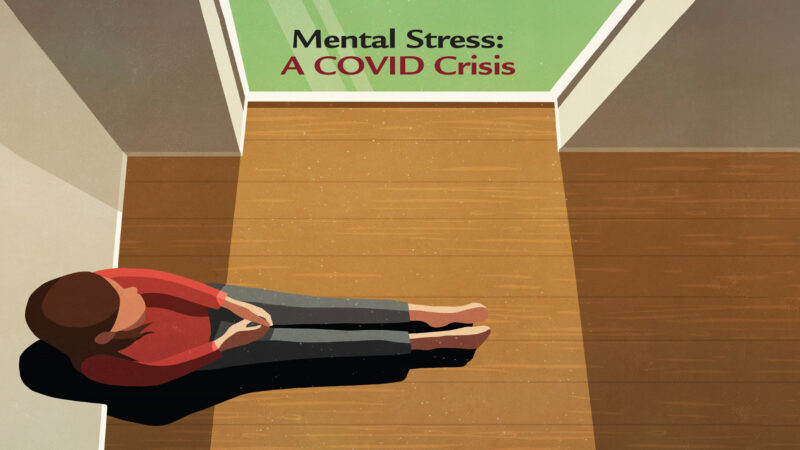In the Community
How to cope with the effects of COVID-19 on families’ well-being

Tips from mental health experts given at an Understanding Hampton Roads forum sponsored by the Hampton Roads Community Foundation
History shows that COVID-19 will affect the mental well-being of families and children long after the pandemic ends, two mental health experts said recently during the online forum Mental Stress: A COVID Crisis, which was sponsored by the Hampton Roads Community Foundation.
Parents, educators, caregivers, and the community have important roles in protecting children’s mental health in the short and long term, they said.
Mary Margaret Gleason, M.D., pediatrician and child psychologist at Children’s Hospital of The King’s Daughters, and Adam Alexander, Ph.D., Assistant Professor at the University of Oklahoma Sciences Center, also offered strategies, from limiting the intake of bad news to maintaining family routines, to help children and caregivers cope during great change and crisis.
“As a nation, we’re all mourning something at this time,” such as the loss of loved ones or jobs, Alexander said.
Communities of Color have been hardest hit by the pandemic while also facing additional stresses, including the recent rise in attacks on Asian Americans, said Alexander, who is the 2019 National Institute of Minority and Health Disparities Fellow.
Gleason, who also is Division Director, Child and Adolescent Psychiatry at Eastern Virginia Medical School, said some children have benefited from decreased academic or social stress and more unstructured time. Others, though, are at higher risk for mental health problems, with children’s emergency room visits for mental health, substance abuse, and child abuse increasing, Gleason said.
Kids can experience changes in sleep, eating, and mood in response to crisis, she said. Symptoms of stress can last years and interfere with learning, development, and connections with family, she said.
“What we experience today will continue to have impact on the next generation and probably the next generation to come,” said Gleason, whose great-grandmother died during the Spanish flu pandemic in 1918, leaving a toddler who grew up to be Gleason’s grandfather.
Gleason said parents and educators can make life feel more predictable and safe for children by:
- using COVID precautions
- maintaining realistic and consistent expectations
- keeping up family routines
- finding ways to help children stay connected with friends and relatives
- limiting screen time
Caregivers should acknowledge that life is different as well as discuss their feelings and those of children in their care, Gleason said. “It’s a lot of work to get through a pandemic,” she said.
Alexander said it’s also important to eat nutritious foods, move the body, and get enough sleep. He also urged caregivers to seek out positive outlets to relieve stress.
“A great way to jumpstart your mental health is to go out and serve others,” Alexander said, citing as an example of churches in Oklahoma that worked with the a humanitarian aid organization to feed families.
Alexander also suggested trying yoga, meditation, and deep breathing exercises. Gleason said she keeps a bottle of bubble solution in her office to teach children to relax by breathing slowly — a skill good for people of all ages to learn.
The program, sponsored by the Foundation in partnership with EVMS, was part of the Understanding Hampton Roads civic engagement series. Cynthia Romero, M.D., Director, M. Foscue Brock Institute for Community and Global Health, moderated the event.
Watch a recording of the forum and find a host of mental health resources here.


